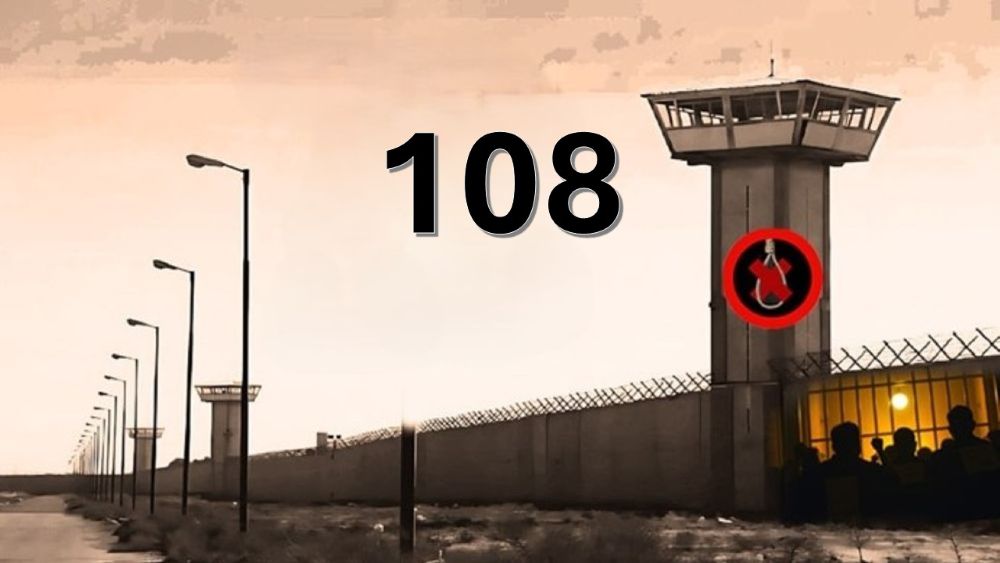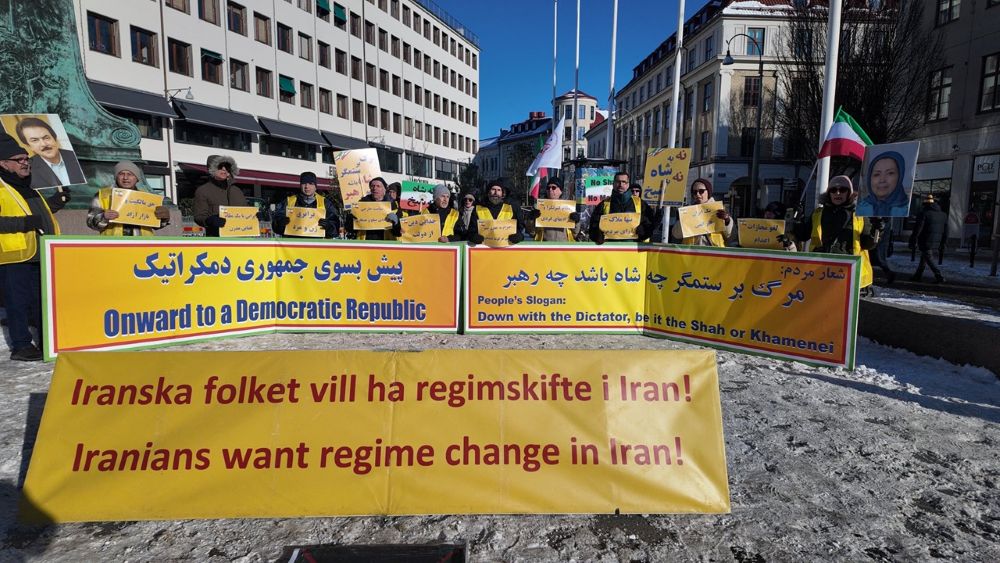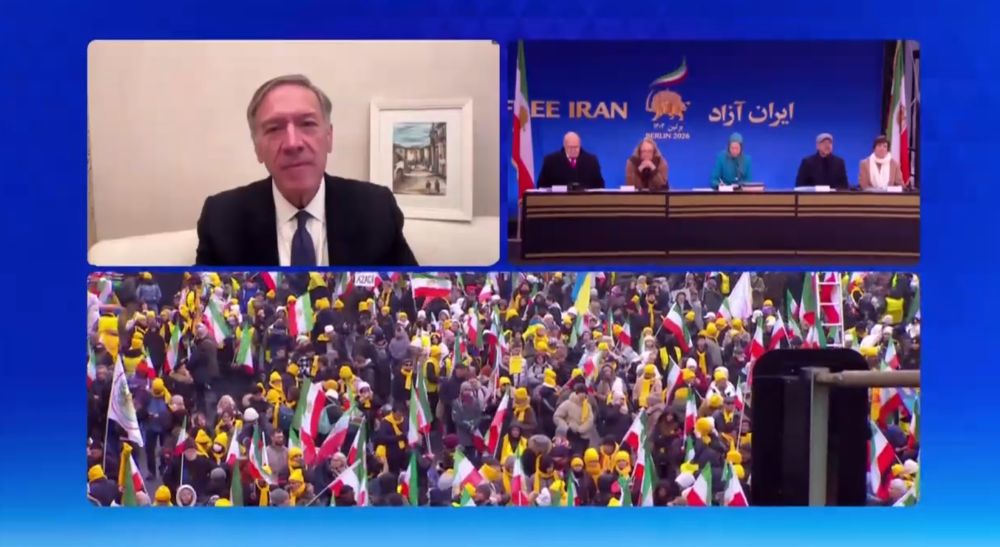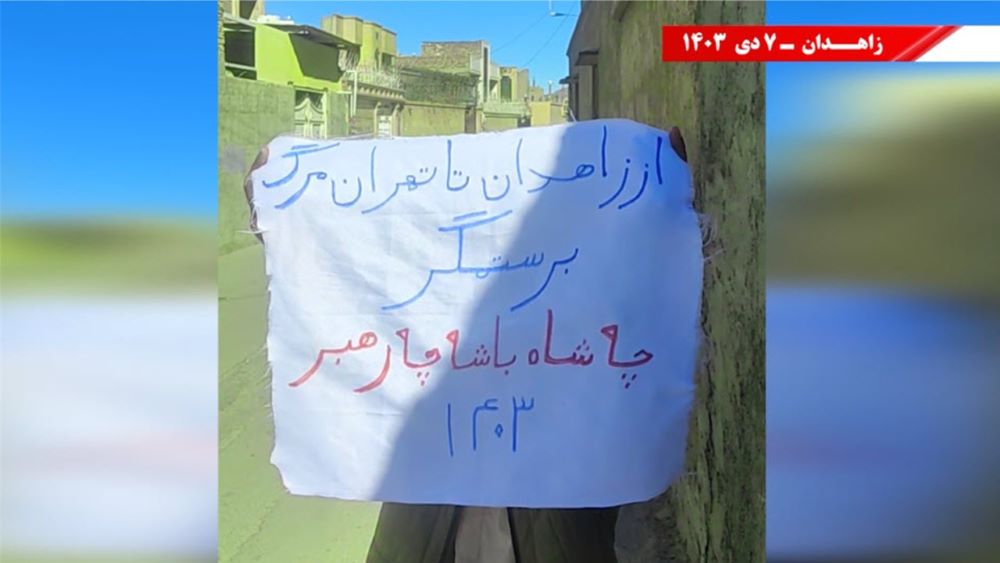
Baluchestan, Iran – December 27, 2024: In Zahedan, a city renowned for its historical resistance against authoritarian regimes, the PMOI Resistance Units have intensified their efforts against the Iranian regime, reaffirming their dedication to dismantling all forms of dictatorship. This surge in activism is marked by a wave of demonstrations featuring placards adorned with revolutionary slogans advocating for the regime’s overthrow and the establishment of democracy in Iran.
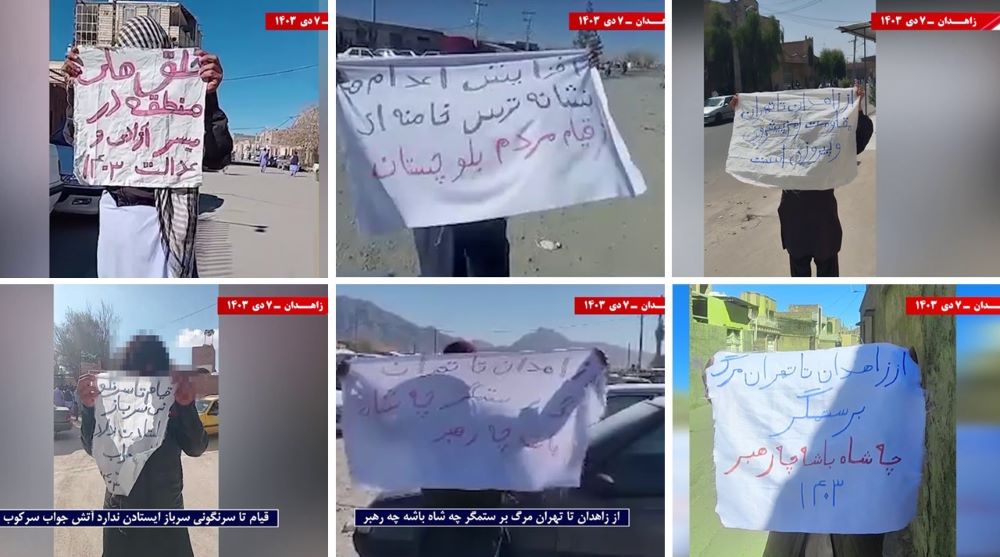
The slogans echo a powerful rejection of oppression, articulating demands for change that resonate across the nation. Notable phrases include “From Zahedan to Tehran, down with the oppressor, be it the Shah or the mullahs” and “From Zahedan to Tehran, the key to progress and victory is resistance.” These statements not only reflect a broad ideological commitment but also aim to unite citizens from various regions in their quest for freedom.
The resistance movement has also been vocal about the regime’s ongoing repressive measures, particularly a significant rise in executions. They argue that these actions reveal Supreme Leader Ali Khamenei’s deep-seated fear of a popular uprising. The recent execution of 19 individuals in Baluchestan serves as a stark example of the regime’s brutality under President Masoud Pezeshkian, who is ironically labeled a “reformist.”
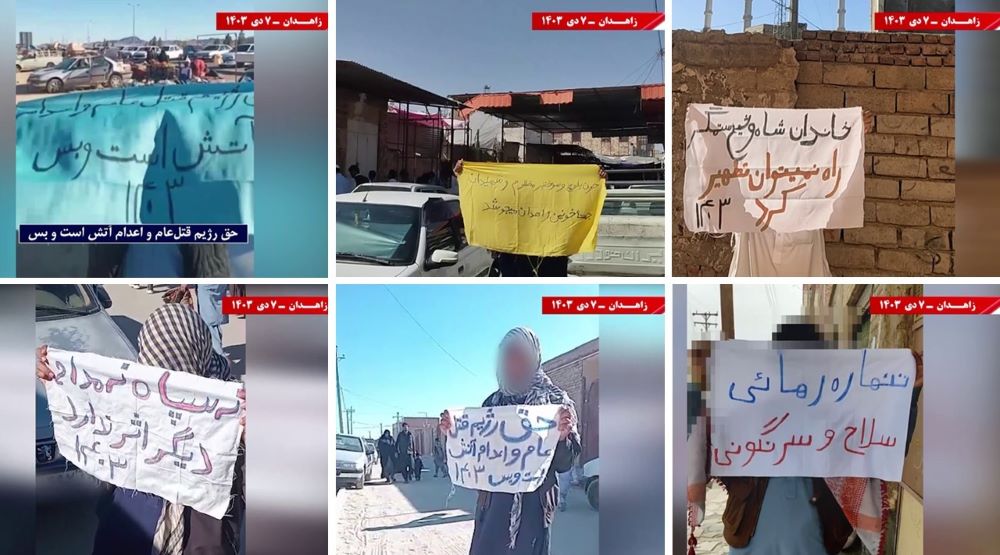
Furthermore, the PMOI Resistance Units criticize the regime’s propaganda efforts, asserting that neither the Islamic Revolutionary Guard Corps (IRGC) nor state media can effectively quell the growing discontent among Iranians. They emphasize that “The tyranny of the shah and mullahs can’t be whitewashed,” and declare a resolute “No to Shah and Mullahs; Khamenei’s rule is coming to an end.”
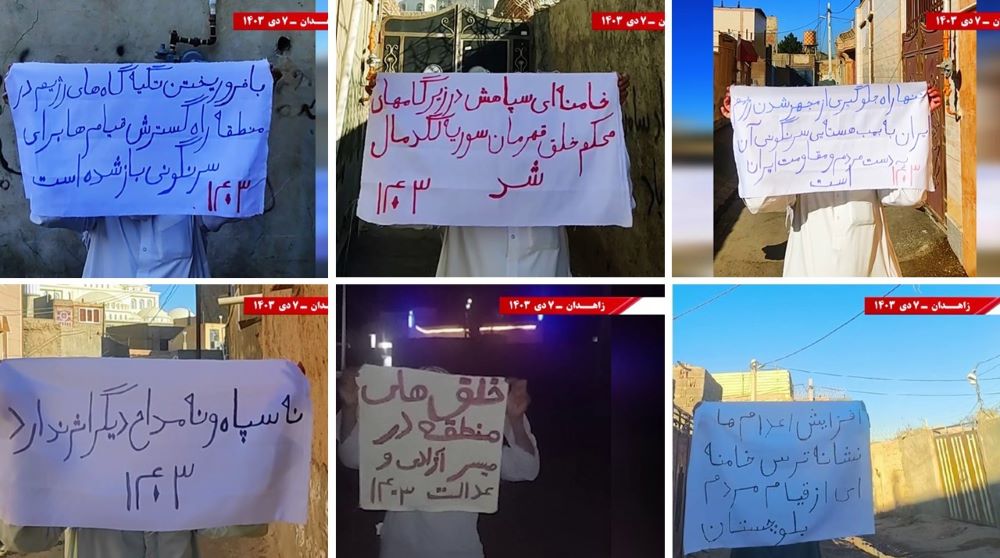
The regime faces additional challenges from regional developments, such as the decline of the Assad dictatorship in Syria, which the resistance argues could inspire further uprisings and contribute to its downfall. They assert that “Khamenei and IRGC were crushed under the feet of the people of Syria,” indicating a perceived weakening of Iran’s influence abroad.
Central to their message is the belief that preventing Iran from acquiring nuclear capabilities requires complete regime change, led by its people and supported by resistance efforts. The slogan “Woman Resistance Freedom” encapsulates a broader call for rights and liberties, particularly resonating within Iran’s ongoing women-led protests.
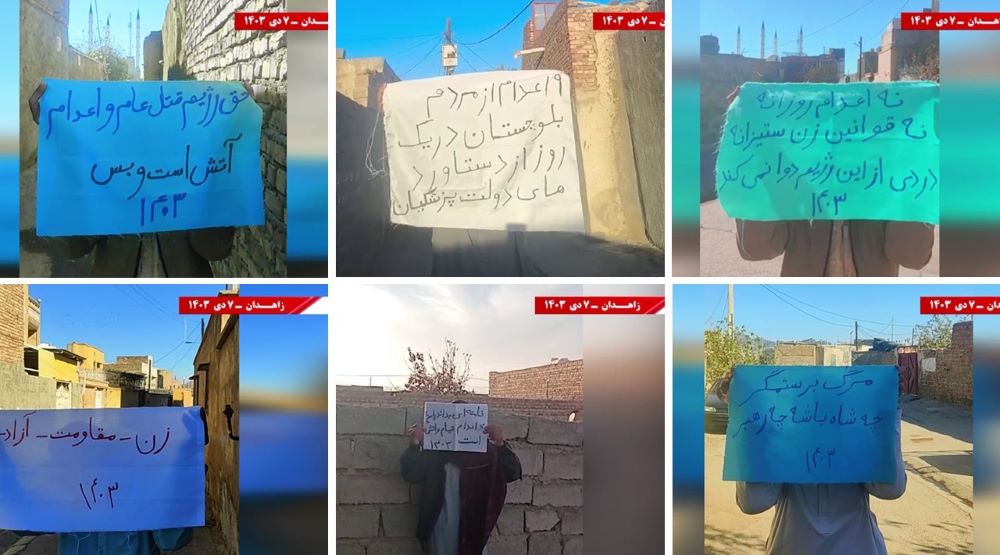
As these activities persist, slogans from Zahedan to Tehran illustrate a population increasingly united in their pursuit of freedom and justice, undeterred by escalating crackdowns and inspired by a vision of a post-dictatorial Iran.

